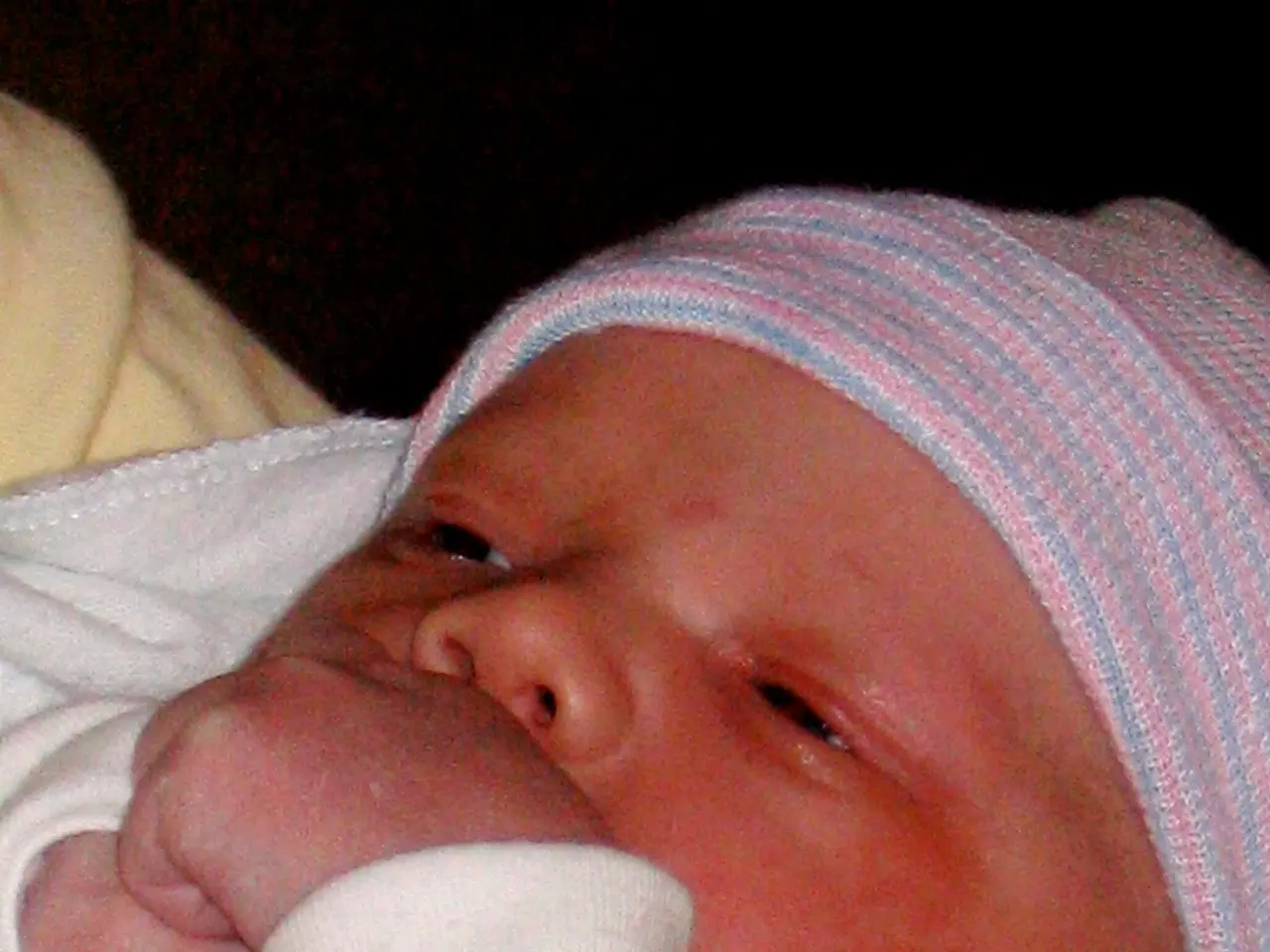Newborn Bonding from a Nigerian Point of View
In Nigerian culture, bonding with a newborn is deeply rooted in tradition and customs. One such practice is skin-to-skin contact immediately after birth, a belief passed down through generations and considered beneficial for regulating the baby's temperature, calming them, and promoting breastfeeding. This tradition continues in the practice of babywearing, where newborns are carried close to their mothers using wrappers or slings, promoting constant skin-to-skin contact and a sense of security and belonging.
The Omugwo custom, predominant among the Igbo people, is another significant aspect of postpartum care. In this tradition, the maternal grandmother (or an older female relative) moves into the new mother’s home to provide comprehensive support. This support includes cooking, bathing the baby, and caring for the mother, nurturing both emotionally and physically through practices like warm water baths, belly binding, herbal steam treatments, and storytelling.
Grandmothers and older women play a key role in child-rearing in Nigerian communities, with naming ceremonies—which invoke blessings from ancestors—being communal events that reinforce familial ties and social bonds. Physical closeness is also highly valued; carrying babies on the back is a common practice across many African cultures, including Nigeria. This method of carrying strengthens the bond between caregiver and infant through constant contact, providing comfort and security to the baby while allowing the caregiver to engage in daily tasks.
Fathers in Nigeria also play a significant role in bonding by actively participating in caregiving activities. Regular interactions stimulate brain development and build a foundation for healthy relationships later in life. To further enhance communication and interaction, modern methods such as talking, reading aloud, sensory play, and interactive play with toys can be incorporated.
Co-sleeping is another traditional practice in Nigeria, where the baby sleeps in the same bed as the parents, allowing for frequent physical contact and promoting a sense of security and closeness between the child and the parents. However, it is crucial to strike a balance between the cultural significance of co-sleeping and ensuring the safety of a newborn. Essential safety measures include opting for a firm mattress, avoiding soft bedding, placing the baby on their back to sleep, ensuring there are no gaps or barriers around the sleeping area, and avoiding the use of heavy blankets.
Building a strong bond with your newborn is crucial for their overall development and well-being. Skin-to-skin contact between a mother and her newborn baby offers numerous benefits for both mother and baby, including regulating body temperature, stabilizing heart and breathing rates, promoting breastfeeding, and increasing milk production. Engaging in eye contact, smiling, and responding to a newborn's coos and babbling helps create a sense of security and attachment.
Bonding with a newborn in Nigeria extends beyond immediate family members, involving the community at large. Babywearing supports optimal physical growth by stimulating a baby's vestibular system, crucial for balance and coordination. Furthermore, babywearing transcends the practicality of simply carrying a child; it fosters a profound emotional connection and promotes a sense of trust, as babies can feel the heartbeat and rhythmic breathing of their caregiver.
Incorporating modern methods of communication and play can further enhance communication and interaction with a newborn, such as talking and narrating, reading aloud, sensory play, exaggerated facial expressions and gestures, playtime, singing and music, and interactive play with toys. By blending traditional practices with modern safety guidelines and communication methods, Nigerian parents continue to create a unique and nurturing environment for their newborns, fostering strong bonds that last a lifetime.
- Education on the importance of nutrition in motherhood and newborn care is essential for a healthy start in life, being a key aspect of Nigeria's education-and-self-development.
- Engaging in playtimes with a baby, incorporating toys and sensory play, plays an instrumental role in fostering social skills necessary for their future development.
- Adequate safety measures contribute to ensuring the health and well-being of the baby during activities like co-sleeping, as part of a comprehensive health-and-wellness plan for both parents and kids.
- Enhancing breastfeeding practices through skin-to-skin contact and the Omugwo custom benefits not just the newborn but also the mother, promoting emotional well-being and contributing to a healthy lifestyle.
- By sharing stories during the Omugwo custom, older women contribute to the children's learning and social development, passing down cultural values and traditions from generation to generation.
- Grandmothers and mothers can improve their own parenting skills through educational resources in home-and-garden magazines, focusing on modern parenting techniques and science-backed approach to child-rearing.
- By carrying their babies using wrappers or slings, new mothers can continue to engage in daily tasks while fostering a strong bond, demonstrating the versatility of the African parenting lifestyle.
- Fathers who actively participate in child-rearing and bonding activities can significantly impact their children's behavior and emotional development, providing a strong foundation for their relationships later in life.
- Caring for a newborn on a daily basis, such as cooking, bathing, and caring for their basic needs, is a cherished aspect of Nigerian family life, brought out through the Omugwo custom and emphasizing the importance of family values.
- The practice of skin-to-skin contact goes beyond Nigeria, being embraced by various cultures worldwide for its undeniable benefits on the newborn's overall health, development, and emotional security.




